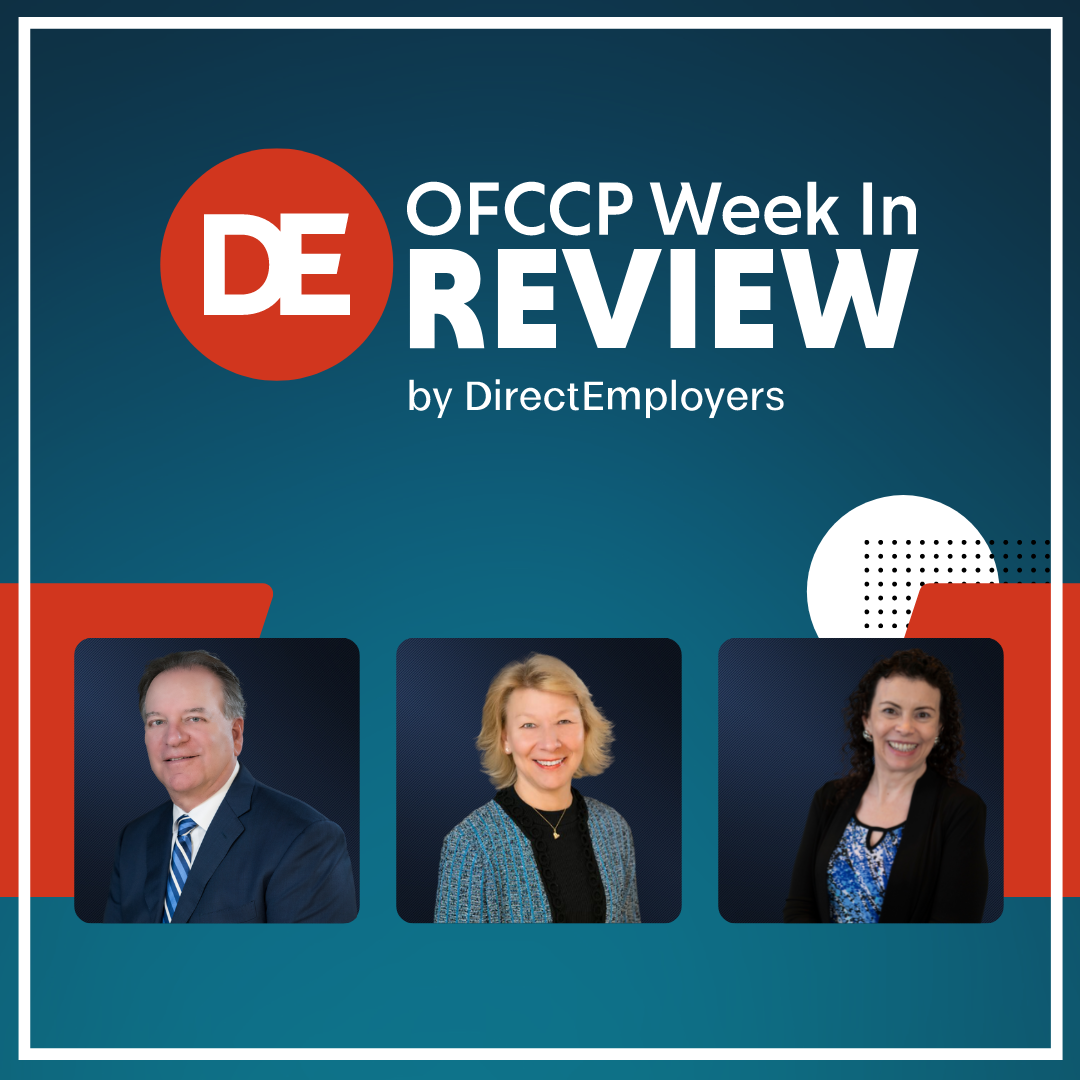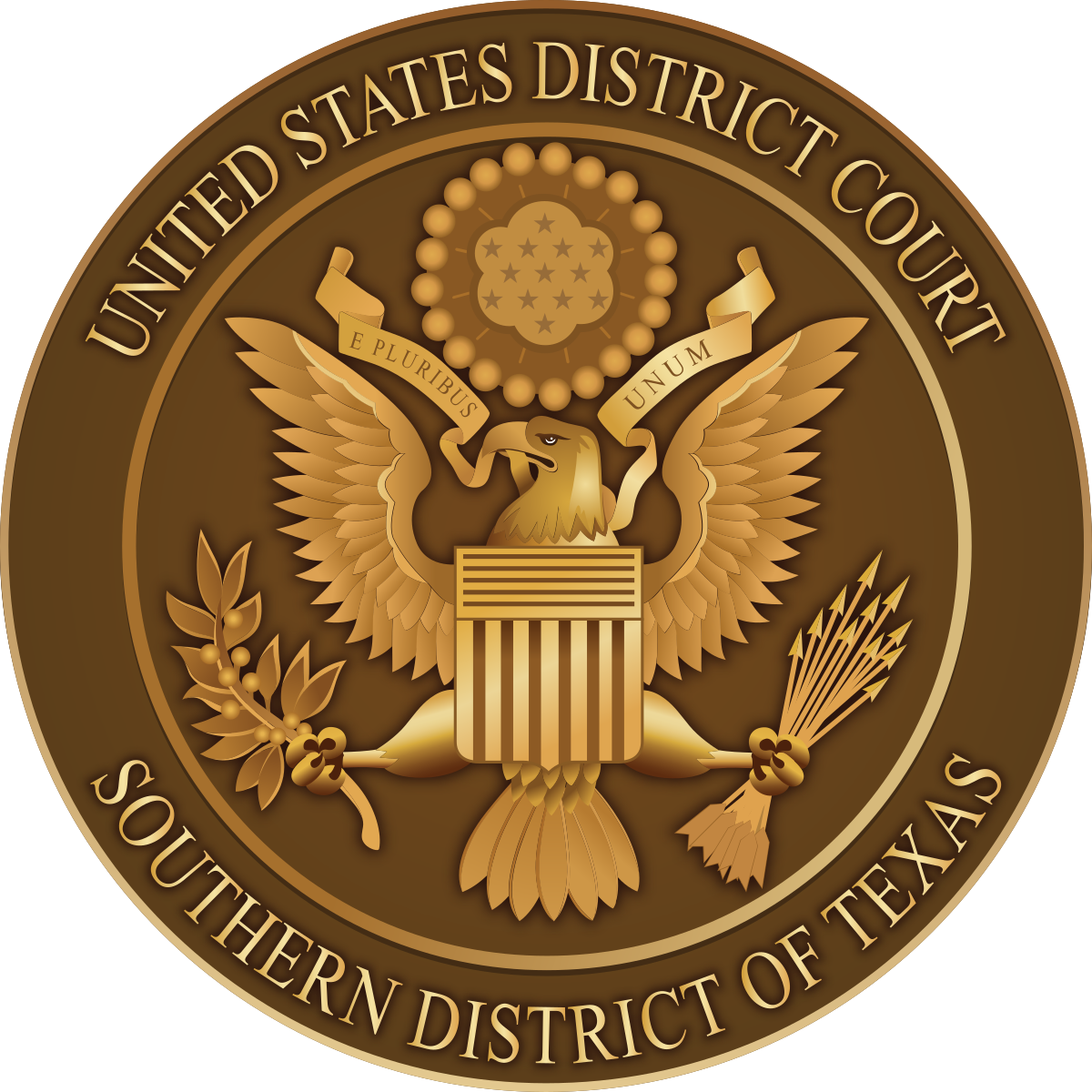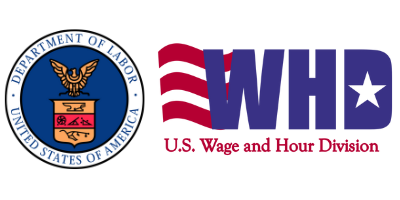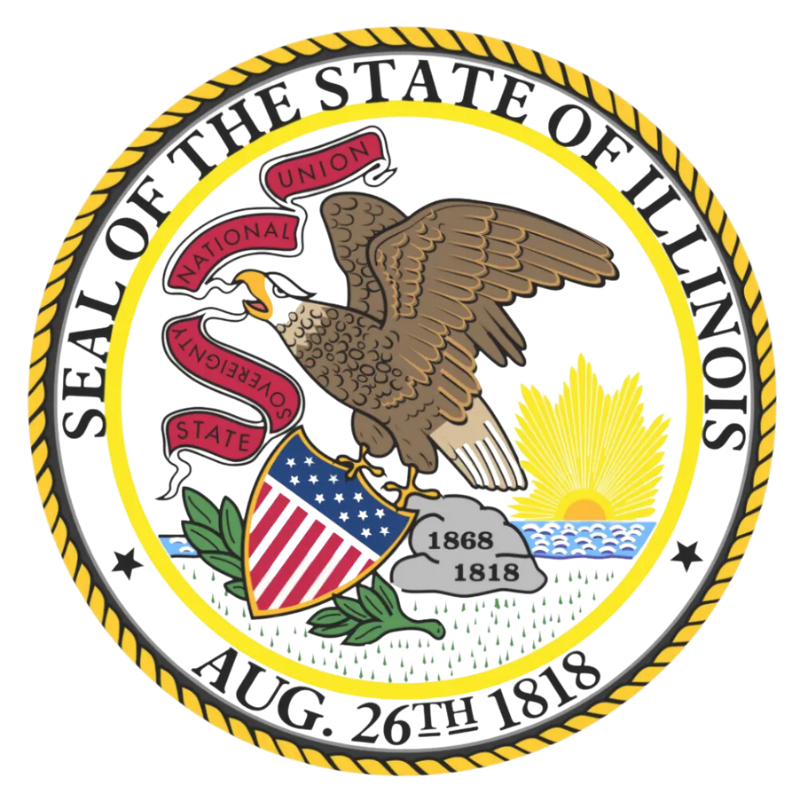 The DE OFCCP Week in Review (WIR) is a simple, fast and direct summary of relevant happenings in the OFCCP regulatory environment, authored by experts John C. Fox, Candee J. Chambers and Cynthia L. Hackerott. In today’s edition, they discuss:
The DE OFCCP Week in Review (WIR) is a simple, fast and direct summary of relevant happenings in the OFCCP regulatory environment, authored by experts John C. Fox, Candee J. Chambers and Cynthia L. Hackerott. In today’s edition, they discuss:
- U.S. EEOC Announced Proposed Regulations to Implement PWFA
- Federal Judge Ordered Southwest Airlines Attorneys to Attend “Religious Liberty Training”
- USDOL Announced Controversial Final Rule Updating Davis-Bacon Act Rules Increasing Prevailing Wages on Public Construction Projects
- EEOC Settled Its First Lawsuit Alleging AI Hiring Discrimination
- In Brief
- Looking Ahead: Upcoming Date Reminders
Monday, August 7, 2023: U.S. EEOC Announced Proposed Regulations to Implement PWFA
Comments Due by October 10
Agency Posed 13 “Directed Questions” for Comments

Comments on the proposal are due by Tuesday, October 10, 2023, and you can submit them here. Note that in addition to the ability of members of the public to offer the Commission general comments, the EEOC is specifically seeking comments on a list of 13 “Directed Questions.”
“We encourage the public to provide meaningful feedback about how the proposal would impact workplaces and ways to assist employers and workers in understanding the law,” Commission Chair Charlotte A. Burrows stated in the announcement.
The PWFA law took effect June 27, 2023. The following day, the EEOC submitted its proposed regulations to implement the new statute to the White House Office of Management and Budget for review. The statute provides that the EEOC must issue finalized regulations to implement it by December 29, 2023. For additional background, see our stories here, here, and here.
What’s in the NPRM?
The PWFA is closely modeled after Title I of the Americans With Disabilities Act of 1990 (“ADA”) and also incorporates various provisions of Title VII of the Civil Rights Act of 1964 (“Title VII”), as modified by the Pregnancy Discrimination Act of 1978 (“PDA”). It also addresses limitations in coverage under Title VII, the ADA, and the Family and Medical Leave Act (“FMLA”).
The PWFA, for the first time, requires accommodations for pregnant employees due solely to their pregnancy unrelated to an underlying medical condition. The PWFA requires employers with 15 or more employees to provide reasonable accommodations unless it would pose an undue hardship to the employer. The legislation includes protections not already codified in the ADA or the PDA. Specifically, the PWFA allows pregnant employees to continue working by requiring employers to provide accommodations such as additional bathroom breaks, light duty, or a stool to sit on if an employee stands all day. The measure also prohibits employers from denying employment opportunities to women based on their need for reasonable accommodations due to childbirth or related medical conditions.
Accordingly, the PWFA NPRM incorporates many elements of the EEOC’s existing regulations regarding the ADA, Title VII, and the PDA. For example, the proposal adopts the ADA’s provisions as to reasonable accommodation, undue hardship, and the interactive process. The NPRM also includes a non-exhaustive list of examples of how employers might comply with the various PWFA provisions.
In addition, the preamble to the NPRM contains a Section-By-Section analysis of the proposed regulations.
Commission Vote on Proposal
The EEOC’s press release on the proposal notes that “[t]he NPRM was approved by majority vote of the Commission on August 1, 2023.” Politico reported Tuesday that “[t]he EEOC’s two Democratic commissioners and one of its Republican appointees voted to advance the regulations, while GOP Commissioner Keith Sonderling abstained.” Commission Chair Burrows (Democrat), Vice Chair Jocelyn Samuels (Democrat), and Commissioner Andrea R. Lucas (Republican) were all quoted in the press release, but Commissioner Sonderling was not. [Note that EEOC’s newest member – Kalpana Kotagal, the third Democrat on the five-member, bipartisan Commission – was not sworn in until Wednesday, August 9.]
Abortion Coverage Controversy
The text of the PWFA does not mention abortion. However, the NPRM includes “having or choosing not to have an abortion” among the non-exhaustive list of examples of pregnancy, childbirth, or related medical conditions that the Commission has concluded generally fall within the statutory definition. In footnote 51 of the NPRM, the EEOC explains this inclusion by citing its own Enforcement Guidance on Pregnancy Discrimination as well as numerous federal court decisions on existing federal employment laws.
On Tuesday, U.S. Senator Bill Cassidy (R-LA), Ranking Member of the Senate Health, Education, Labor, and Pensions Committee, issued a statement accusing the agency of “go[ing] rogue” and “disregarding legislative text and injecting abortion politics” into the proposed regulations.
According to Cassidy, “[t]he legislation originally passed with overwhelmingly bipartisan support with the intent that abortion would not be included.”
Monday, August 7, 2023: Federal Judge Ordered Southwest Airlines Attorneys to Attend “Religious Liberty Training”
Ruling Follows Jury Award to Former Flight Attendant of >$5M In Abortion Views Bias Suit

How We Got Here
In July 2022, a Federal District Court jury in North Texas awarded the former SWA Flight Attendant over $5 million after finding in her favor in a lawsuit against the airline and her union. Among other findings, the jury determined that the airline discriminated against the flight attendant because of her sincerely held religious beliefs and failed to accommodate her religious beliefs in violation of Title VII. She claimed that she was fired in March 2017 after complaining – via a series of social media posts and private messages to her union (TWU Local 556) president – about flight attendants and the president attending the 2017 Women’s March in Washington, D.C. where over 500,000 people protested President Donald Trump’s positions on abortion and other issues. Prominent Supporters of the March included Planned Parenthood and other advocacy organizations supporting abortion rights. For more details on that jury verdict, see our story here.
Judge’s Contempt Order Found Airline Did Not Follow Previous Order in Several Respects
In December 2022, Judge Starr – a President Trump nominee – ordered Southwest to reinstate the flight attendant and take several other remedial actions. Among those, the judge ordered the airline to tell flight attendants that under Title VII, it “may not discriminate against Southwest flight attendants for their religious practices and beliefs, including – but not limited to – those expressed on social media and those concerning abortion.”
But the judge found the airline in contempt for how it carried out this order. The airline’s message to flight attendants, authored by one of the three attorneys at issue, merely stated that “Southwest does not discriminate against our Employees for their religious practices and beliefs.”
On top of that, Southwest also circulated a memo to flight attendants, presenting its view of the case. According to Judge Starr the memo “lambasts” the flight attendant by criticizing her conduct that resulted in her termination.
Tuesday, August 8, 2023: USDOL Announced Controversial Final Rule Updating Davis-Bacon Act Rules Increasing Prevailing Wages on Public Construction Projects

Enacted in 1931, the DBRA requires the payment of prevailing wages and fringe benefits to laborers and mechanics who work on federal or District of Columbia contracts in excess of $2,000 for the construction, alteration, or repair of public buildings and public works. According to a WHD press release, the Final Rule contains the “most comprehensive updates in 40 years,” including an update to the formula the government uses to set prevailing wages.
Vice-President Kamala Harris announced the new Rule at an event held in a union hall in Philadelphia, Pennsylvania, alongside Acting Labor Secretary Julie Su. In her remarks, VP Harris provided examples of how the updates will raise wages for federal contract construction workers. Pennsylvania is, of course, a key “swing state” where the blue-collar vote significantly affects federal election results. Pennsylvania’s Senior United States Senator is up for re-election in 2024.
Although the WHD made the Final Rule available for Public Inspection on the Federal Register website, the Final Rule will not officially publish until Wednesday, August 23. The Rule will take effect 60 days after the official Federal Register publication (which would be October 22, 2023, if the Final Rule is published, in fact, on August 23, 2023.)
The WHD also launched a landing webpage containing links to the pre-publication version of the Final Rule, an FAQ, a chart comparing the Final Rule to Existing Regulations and Policy, and registration for upcoming webinars. The WHD announced the webinars on Friday. The agency will hold the webinars on September 13 and 14, beginning at 1 p.m. EDT.
What are the Updates?
The WHD announcement highlighted the following updates in the DBRA Final Rule:
- Returning to the definition of “prevailing wage” used from 1935 to 1983 to address the overuse of average rates, and ensure they better reflect actual wages paid to workers in local communities;
- Periodically updating certain non-collectively bargained and out-of-date prevailing wage rates;
- Recognizing the WHD’s broad authority to adopt state or local wage determinations as the federal prevailing wage where certain criteria are satisfied;
- Allowing wage determinations to include supplemental rates for key classifications when insufficient survey data exists to publish prevailing wage rates;
- Modernizing and clarifying the definitions of “building or work” and “site of the work;”
- Applying DBRA clauses and wage determinations to contracts by operation of law, even if they are mistakenly left out of a federal contract; and
- Strengthening enforcement, including debarment and new anti-retaliation provisions.
How We Got Here
The WHD published its NPRM to update the Davis-Bacon and Related Acts regulations (RIN: 1235-AA40) on March 18, 2022. The comment period ended on May 17, 2022, with approximately 40,935 comments submitted. Our stories here and here detailed that proposal. On Monday, August 7, 2023, the White House Office of Management and Budget approved the Final Rule. In the Fall 2022 Agenda, the WHD set a February 2023 publication for its Final Rule, but the Spring 2023 Regulatory Agenda revised the target date to June 2023.
Wednesday, August 9, 2023: EEOC Settled Its First Lawsuit Alleging AI Hiring Discrimination

The EEOC alleged in its Complaint and repeats in the Consent Decree the parties jointly proposed to the Court, that the iTutorGroup companies intentionally programmed their employment application software to automatically reject female applicants over the age of 55 and male applicants over the age of 60. The EEOC has further alleged that the iTutorGroup companies failed to hire Charging Party Wendy Pincus and more than 200 other qualified applicants age 55 and older from the United States because of their age in violation of the Age Discrimination in Employment Act (“ADEA”).
The iTutorGroup has previously denied the discrimination allegations in that the company has asserted that its tutors, and the tutor applicants, were not “employees” covered under the ADEA, but instead were “independent contractors.” (EDITOR’S NOTE: If an employer’s “workers” (neutral term) were not “employees,” but rather were “Independent Contractors,” the EEOC would concede that the ADEA would not prohibit discrimination against independent contractor applicants because of their age.)
Under the proposed settlement agreement, iTutorGroup will pay $365,000 to a specified group of rejected job seekers.
As of our WIR deadline, the court had not approved the proposed settlement. However, on Thursday, August 10, U.S. Magistrate Judge Peggy Kuo ordered, in light of the Notice of Settlement, the cancellation of a settlement conference calendared for October 4.
In addition to the monetary provisions, the agreement requires the company to:
- refrain from screening out, or discriminating against, tutor applicants because of their age and sex;
- post and distribute notices concerning the lawsuit to specified parties;
- implement non-discrimination and complaint policies (which the EEOC will propose);
- provide four-hour training programs conducted by third parties (both of which the EEOC must approve) for all supervisory and management employees, as well as any employees or independent contractors who may be involved in screening, hiring, or supervising tutor Applicants and tutors; and
- submit monitoring to EEOC and send specified reports to the EEOC every six months for up to five years.
How We Got Here
On May 5, 2022, the EEOC issued a press release announcing the lawsuit and the Commission filed its complaint in the U.S. District Court for the Eastern District of New York (EEOC v. iTutorGroup Inc., No. 1:22-cv-02565).
EDITOR’S NOTE: The non-discrimination statutes in the United States are the most-far-reaching and comprehensive in the world. They are literally “foreign” to almost all employers and managers who work outside of the U.S. Realizing this harsh reality and as trans-national companies in the early 1980s were first beginning to go “One World,” the U.S. Department of State and U.S. Department of Labor asked our WIR colleague John Fox to travel to Japan to educate all Japanese corporations about U.S. discrimination laws. John spent two weeks traveling throughout Honshu Island (the largest and most densely populated of Japan’s five islands) with American and Japanese government officials (to register the importance and imperative nature of the education) to teach the Chief Executive Officers and General Counsels of every major Japanese corporation doing business in America about U.S. non-discrimination laws.
Later in that decade when John settled his law practice in Silicon Valley, the greatest “mixing bowl” of nationalities in the world (where over 1/3rd of the Valley’s 3 million total population is foreign born and companies often daily publish internal communications and newsletters in 10-15 languages), John developed an Employment Law presentation for foreign-born managers titled “When in Rome, Do as The Romans Do.” It soon became a “must attend” session shortly after the arrival in northern California of a new foreign-born manager setting foot in the U.S. for the first time.
Age, sex, and national origin discrimination are not unlawful in most parts of the world. Arrival on American shores presents immediate cultural and educational challenges for many foreign managers. While typically very enthusiastic to be in the U.S. and anxious to learn the “rules of the road” here, they often do not have “a map” and are often very surprised to learn about our “foreign” (to them) customs and laws.
As one General Counsel of a major international company remarked (in remarkably good English) after his “When in Rome” training: “So, you mean that my company cannot hire only young and attractive women and we have to pay them the same as our men?” Mr. Fox’s response was: “Yes. You are correct. You will find the support for that on page 1 of the PowerPoint handout we just discussed.” We are very different, and it is often a shock to and often necessitates a transition for our foreign friends and guests, as it often is for our American-born managers going the other way.
In Brief
Friday, August 4, 2023: White House Told Agencies to “Aggressively Execute” Return-to-Office Plans

In April we reported that the White House Office of Management and Budget issued guidance on requiring agencies to develop updated Work Environment Plans that will “substantially increase meaningful in-person work at Federal offices.”
Friday, August 4, 2023: Governor Pritzker Signed a Bill Making Illinois the First U.S. State to Count Arab Americans When Collecting Public Data

Under the new law, state agencies, beginning on July 1, 2025, must include the MENA category in addition to (1) White, (2) Black or African American, (3) American Indian or Alaska Native, Asian, and (4) Native Hawaiian or Other Pacific Islander when reporting statistical data collections reporting race and/or national origin.
Wednesday, August 9, 2023: Kalpana Kotagal Sworn to Become the Third Democrat on the Five-Member Bipartisan Equal Employment Opportunity Commission

On Wednesday, EEOC Chair Charlotte A. Burrows swore in Kalpana Kotagal to be a Commissioner for a term expiring July 1, 2027. Last month, we reported how Kotagal barely squeaked by her Senate confirmation vote and provided a detailed background on the twists and turns of her lengthy nomination journey.
Looking Ahead:
Upcoming Date Reminders
NOTE: There is one “New” flag reported below.
June 2023: U.S. DOL WHD’s current target date (now overdue) to publish its Final Rule on Nondisplacement of Qualified Workers Under Service Contracts (RIN: 1235-AA42)
June 2023: U.S. OSHA’s current target date (now overdue) to publish its Final Rule on Occupational Exposure to COVID-19 in Healthcare Settings (RIN: 1218-AD36)
Wednesday, August 23, 2023 (2:00 pm ET): DirectEmployers/USCIS Webinar on 2023 Revised Form I-9
Monday, August 28, 2023: Employers required to file Form LM-10 (union “persuader reports”) must begin using revised version of the form
August 2023: U.S. DOL WHD’s current target date for its Final Rule on Employee or Independent Contractor Classification Under the Fair Labor Standards Act (RIN: 1235-AA43)
August 2023: U.S. DOL WHD’s current target date for its Notice of Proposed Rulemaking on Defining and Delimiting the Exemptions for Executive, Administrative, Professional, Outside Sales and Computer Employees (RIN: 1235-AA39) (The WHD submitted this proposal to the OMB on July 12, 2023)
August 2023: U.S. NLRB’s target date for its Direct Final Rule on Quickie Election Procedures (RIN: 3142-AA18)
August 2023: U.S. NLRB’s current target date for its Final Rule on Standard for Determining Joint-Employer Status (under the NLRA) (RIN: 3142-AA21)
August 2023: U.S. NLRB’s current target date for its Final Election Protection Rule (RIN: 3142-AA22)
August 2023: U.S. DOL’s OASAM’s current target date to publish Proposed Rule on “Revision of the Regulations Implementing Section 188 of the Workforce Innovation and Opportunity Act (WIOA) to Clarify Nondiscrimination and Equal Opportunity Requirements and Obligations Related to Sex” (RIN: 1291-AA44)
Tuesday, September 5, 2023: OFCCP’s Final Rule on “Pre-Enforcement Notice & Conciliation Procedures” takes effect
Tuesday, September 19, 2023: Comments due on the Office of Personnel Management’s Proposed Rule – “Recruitment and Selection Through Competitive Examination, and Employment in the Excepted Service (Rule of Many)”
Saturday, September 30, 2023: 2023 VETS-4212 filing deadline – the reporting cycle began on Tuesday, August 1, 2022
Monday, October 2, 2023: Deadline for comments on DHS/ICE’s proposed pilot procedure program & information collection for non-E-Verify participants as to remote I-9 Form document inspections
NEW Tuesday, October 10, 2023: Comments due on EEOC’s Proposed Regulations to Implement the Pregnant Workers Fairness Act
December 2023: OFCCP’s current target date for its Notice of Proposed Rulemaking to “Modernize” Supply & Service Contractor Regulations (RIN: 1250-AA13)
December 2023: OFCCP’s current target date for its Final Rule on “Technical Amendments” to Update Jurisdictional Thresholds & Remove Gender Assumptive Pronouns (RIN: 1250-AA16)
December 29, 2023: Statutory deadline for EEOC regulations to enforce the Pregnant Workers Fairness Act
Monday, January 1, 2024: U.S. DOL OSHA’s Final Rule Requiring Covered High-Hazard Industry Employers to Electronically Submit Injury & Illness Records Takes Effect
Wednesday, April 3 – Friday, April 5, 2024: DEAMcon24 New Orleans
June 2024: OFCCP’s current target date for its Notice of Proposed Rulemaking to Require Reporting of Subcontractors (RIN: 1250-AA15)
THIS COLUMN IS MEANT TO ASSIST IN A GENERAL UNDERSTANDING OF THE CURRENT LAW AND PRACTICE RELATING TO OFCCP. IT IS NOT TO BE REGARDED AS LEGAL ADVICE. COMPANIES OR INDIVIDUALS WITH PARTICULAR QUESTIONS SHOULD SEEK ADVICE OF COUNSEL.
SUBSCRIBE.
Compliance Alerts
Compliance Tips
Week In Review (WIR)
Subscribe to receive alerts, news and updates on all things related to OFCCP compliance as it applies to federal contractors.
OFCCP Compliance Text Alerts
Get OFCCP compliance alerts on your cell phone. Text the word compliance to 55678 and confirm your subscription. Provider message and data rates may apply.

